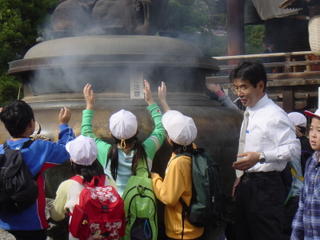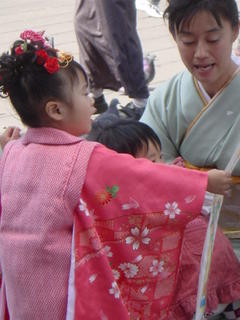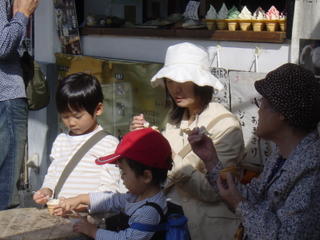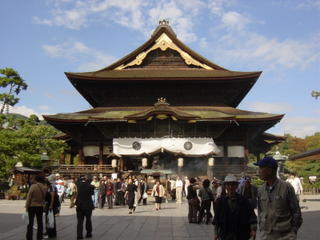



HAPPY NEW YEAR!
Life through my eyes, which I hope are growing wider every day.
Going back to John's "you just want to get married" comment. First of all, why does he say it like he's accusing me of something? Most guys act like this, and many women do, too: it's wrong, weak, old-fashioned, dependent, unadventurous and shrewish to desire marriage. Not to mention, everyone knows that marriage is a trap into which all women try to lure all unsuspecting men, with the single goal of making them feel miserable, trapped, and bored for the rest of their lives. In my experience, all guys seem to think all women want this. Guys want to sleep with you, and they have no qualms voicing these desires. But if you let on that what you prefer to a string of meaningless, soon-to-be-boring-if-not-confusing hookups is a real, intimate and fulfulling relationship with one person...well then by God, "you just want to get maried," and men should avoid you and your traps at all costs.
Second, what John "accused" me of is simply not true. My young-womanhood fantasy does not involve me running back to the US, spending my spare time curling my hair and reading Cosmo, desperately bar- and/or church-hopping to find Mr. Right, who will then propose to me and solve all my "single gal problems." No. Listen-up, fellas, this is what I really want. This is my fantasy:
Return to the States and live in an exciting, relatively traffic-free city with cultural events aplenty and fast, easy access to a pristine lake in the mountains where a shell awaits me constantly and in excellent condition. I will live --newflash!-- not under the same roof as a fiance or husband, but alone. I will happily and ambitiously pursue my dream job as a successful novelist and creator of real literature, not a columnist or blogger or any of the other forms of writing I see as the "junk food" of literature. I will get regular exercise and be a fantastic cook. Then, unexpectedly and without trying, I will meet a man and we will fall madly in love. He, in turn, will live alone, and he will also ambitiously pursue his dream-job that allows him to be financially independent. He will have his circle of guy friends with whom he can go out drinking, bowling, rock-climbing, or whatever it is he enjoys doing. And I of course will have my circle of girl friends, with whom I can talk about everything, shop, exchange cooking recipes and yoga routines. Our lives will be full and exciting, with the comfort of knowing that my significant other is there for me. And I, in turn, will be there for him. We will spend our time together relaxing--not bitching or complaining about work or stupid people--but visiting museums, going hiking, checking out new restaurants and bars, having intellectual discussions, watching college basketball, going on romantic picnics, reading in parks, playing tennis, going to hear quartets, staying on the couch all night to watch movies, grilling steaks and drinking red wine. Sometimes we'll cook together and then do dishes together. But the laundry, the vacuuming, the picking-up and the money-earning will be done on our own, independently, because we ultimately live in our own spaces. We'll have the comfort of loving and being loved enough to marry the other person, but we will also have the freedom and the space necessary to be truly happy in such a close, committed relationship.
Then maybe, when I'm about 30, I'd like to marry this man, and take a brief hiatus from my career to raise our two beautiful children. I refuse to be one of those women who insists she can "have it all" and do everything at once, because that just triples her workload and makes her more tired, stressed, resentful, and frazzled than I ever care to be. One thing at a time, and I will make the most of everything.
Happily unwed until the day that I am wed.
Hopefully this is as "Carrie Bradshaw" as I get. :) Now she's an adjective.
PS -- There is nothing in here to suggest I cannot have all this with a man I've already met.




